
Heather Ann Yonker expands on strategies for maintaining food safety in the home, particularly for patients with compromised immune systems due to cancer.

Heather Ann Yonker expands on strategies for maintaining food safety in the home, particularly for patients with compromised immune systems due to cancer.
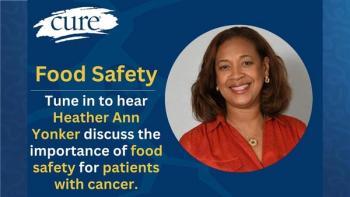
Heather Ann Yonker, emphasizes the importance of food safety practices for patients with cancer, particularly those with weakened immune systems.
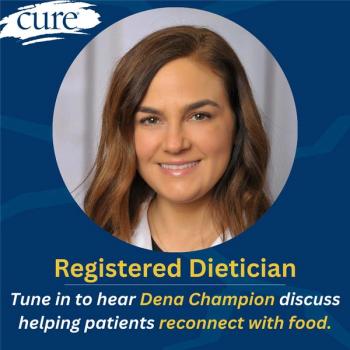
Dena Champion, dietician, explains how taste/smell changes from cancer treatment can make eating difficult and affect recovery.
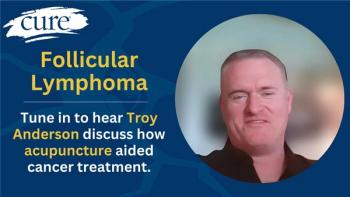
Follicular lymphoma survivor Troy Anderson credited acupuncture and nutrition guidance with easing treatment side effects and aided in remission.
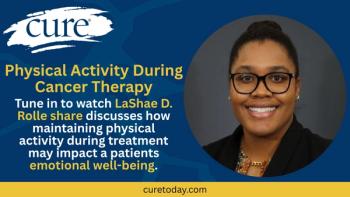
LaShae D. Rolle discusses how maintaining physical activity during active breast cancer treatment may impact a patients mental and emotional well-being.
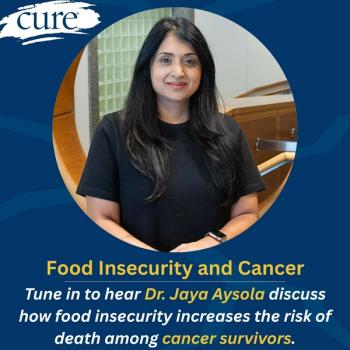
Food insecurity significantly increases the risk of death among cancer survivors, according to research published by Penn Medicine.

Living with Lynch syndrome, nature’s quiet resilience teaches me to accept change, find calm, and stay rooted through life’s unexpected twists and storms.
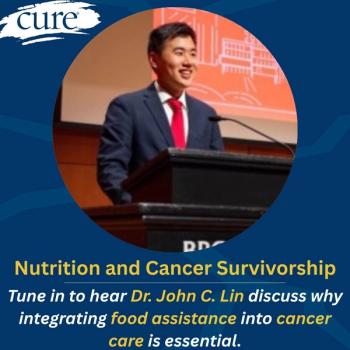
Food insecurity is linked to a 28% higher risk of death among cancer survivors compared with those who have never received a cancer diagnosis, a new study found.

After years of survivorship, I’m realizing that shedding extra pounds may do more than improve comfort — it could reduce my risk of recurrence.

Participation in a structured exercise program following surgery and adjuvant chemo improved key survival end points in stage 3 and high-risk stage 2 CRC.

Researchers have found that engaging in aerobic physical activity results in modest depression reduction among some patients with cancer.

Aerobic and strength training exercises may help preserve physical functioning in older adults with early-stage breast cancer who received chemotherapy.
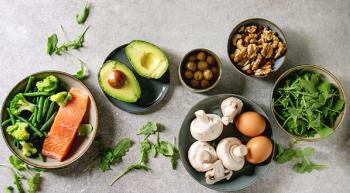
After receiving a diagnosis of ER-positive breast cancer, I took a cancer-free diet seriously.

I've found that nutrition and healthy foods play an important role during cancer.
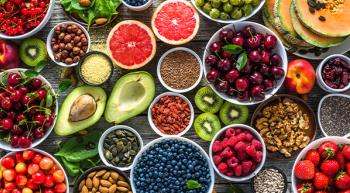
It’s key for patients with cancer to avoid certain food items, such as artificial sweeteners, as they increase junk food cravings, an expert said.

Moderate multivitamin use was associated with a decreased risk of death in patients with colorectal cancer, though more research is needed, an expert said.

For 14 years, I've been dealing with small lymphocytic lymphoma, and want to maintain a healthier diet.

An expert offers two delicious and nutritious recipes that may improve side effects for patients who are undergoing treatment for multiple myeloma.
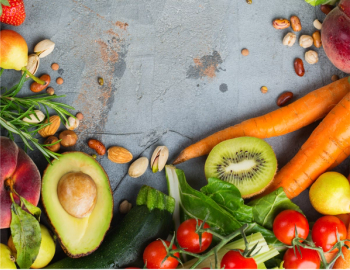
Eating a plant-based diet has been associated with sustained MRD negativity for patients with multiple myeloma.

Survivors who were more physically active may experience less pain than survivors who were not as physically active, research found.
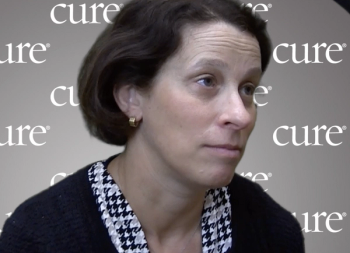
Older adults with gastric cancer tended to have better outcomes when they walked 2,500 steps per day or more.

A 45-minute cancer procedure deemed me to be "cancer free," but it did not assuage all my anxieties.

I hadn’t done aerobics in decades, but it was time to be off the cancer couch.

Diet and exercise can benefit patients with cancer through side effect management and improved outcomes. CURE provides an overview of the most-read diet and exercise stories of 2023.

Exercise can help empower patients with cancer and boost their overall health, though on difficult days, it is equally important that patients give themselves grace, an expert said.

Patients with multiple myeloma who are undergoing systemic treatment can see improvements from exercise, a recent study shows.

Lifestyle changes and remedies such as topical estrogen can be of assistance to cancer survivors dealing with hormone deficiencies, as one expert tells CURE.

During chemotherapy, strawberry-flavored Boost and baked potatoes were the only things I would eat — but this nourishment ended up representing much more.

The new season calls for a new set of nutrient-rich recipes — ones with the perfect blend of fresh vegetables and hearty flavors.
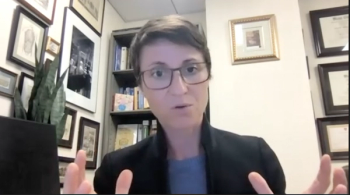
Prehabilitation can help patients become eligible for certain cancer treatments, or also help them recover from therapies, while also improving their overall health and fitness, an expert explained.